
Inserting images into Gmail could be so much better
When Google first launched the new compact compose window in Gmail, many of you might have noticed something annoying about inserting images.
One of the greatest Gmail features has been drag and drop. But if you drag an image into the compose window it is inserted inline. This is less than optimal for two reasons. One, if you want to write an email and insert many images, you probably don't want them inline as it ruins the reading experience. Two, inline images are very static and you can't manipulate them: you can't zoom in or see the pictures in a full window view, and you also can't easily save them to either Google Drive or your computer as you can with attachments.
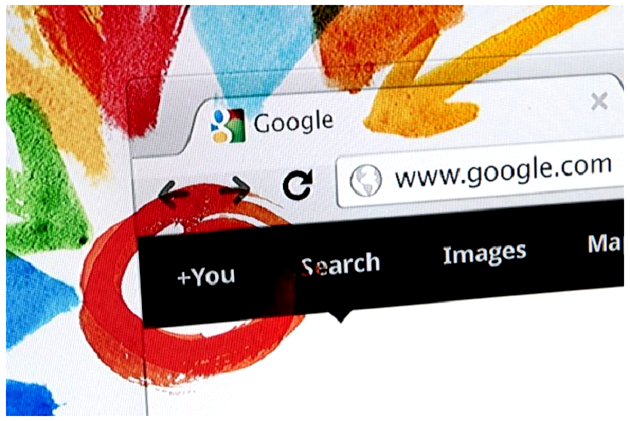
Google finally gives up pushing Google+ accounts on Gmail users
New Gmail users will no longer have to sign up to Google's flagging social network Google+, after two and half years of mandatory social account creation. Users previously had to sign up to Google+ when signing up for Gmail, Google Docs and variety of other Google products.
Whilst the company still encourages users to sign up for Google+ it now has a "No thanks" button when offering the service during the sign up procedure for its products.

Want to know if your Gmail account is vulnerable? There's an app for that
Google is an amazing company that offers many products and services that make our lives better. For example, Gmail, YouTube, Maps and Android help many people every day. Unfortunately, there is one downside to living in Google's world -- having one password.
You see, with Google services, one password gains access to them all by utilizing a central account. If your password is exposed, nefarious people can wreak havoc across Google, including your precious Gmail account. Unfortunately, this recently happened to 5 million users and you could be one of them! Don't panic -- there is now an app for iOS and Android that can tell you if you are affected.
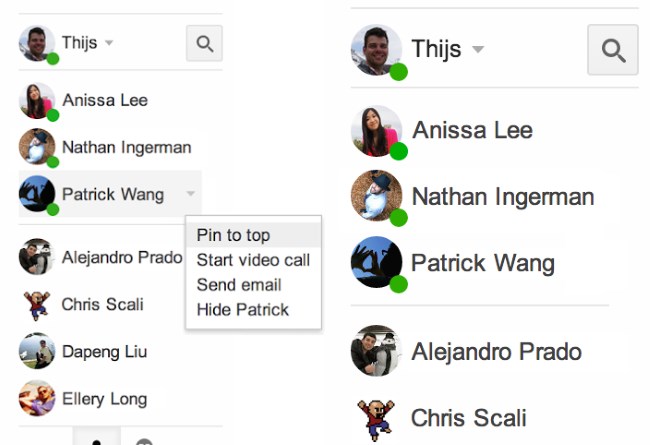
Google makes it easier to see who's online in Hangouts for Gmail
The point of any chat system is to make it easier to communicate with others. This is something that Google Hangouts has singularly failed at, for one reason. Rather than making it obvious which of your contacts are online, it has -- up until now -- displayed a chronological list of the conversations you have held with people. This is about to change. Rolling out over the next few days, is an update which will see your online contact move to the top of your chat buddy list.
This might seem like a small change, but it's one that has been requested for some time now. Google seemingly thought that the tried and true way of ordering contacts was due for a shakeup -- now we know that the experiment didn’t really pay off. There's another new feature to play with as well. Just as Chrome -- and other browsers -- make it possible to pin frequently used tabs so they are always available, now Hangouts users will be given the opportunity to pin contacts to the top of their buddy list.

Google sets its sights on kids with child-friendly versions of YouTube and Gmail
There are many parts of the internet that are blocked to children under the age of 13. Facebook, for instance, implements an age restriction and Google is another online firm that prevents younger web users from setting up accounts. But all this could be set to change. First reported by The Information, Google has plans to open up its service to a younger audience. This does not mean that youngsters will be free to sign up for an account and browse through the contents of YouTube without restrictions. Parents will be able to sign their children up for an account and retain control over what they are able to do online.
One of the primary concerns many people have about Google -- regardless of their age -- is privacy. Google has a proven track record in delivering tailored content and advertisements to its users, and this is something that is at odds with laws around the world when it comes to children. The news coincides with UK plans to experiment with age ratings for online videos, and privacy and child protection groups are already voicing their concerns. Of course, there is nothing to stop someone of any age from signing up for a Google account; it's easy to stretch the truth with dates of birth online. But Google specifically targeting children with its services is unchartered water.

Gmail enables unicode recognition to block links to suspicious sites
Email can be inherently dangerous, as less savvy users can, and do, click links that can lead to nefarious locations on the web. The links are frequently a bit hidden -- characters are slightly altered, such as "0" instead of an "O".
Last week Google rolled out support for non-Latin characters, a great addition, but one that enhances this problem, as well. With that in mind, the company is attempting to protect its email customers, by now enabling recognition of bad links through Unicode checks.
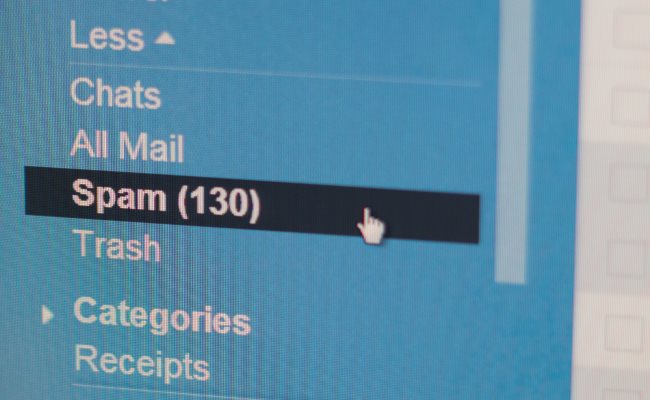
Google makes it easier to unsubscribe from email lists
Gmail is undergoing another change, but this time it's a fairly minor tweak -- and one that is likely to be broadly welcomed. Unsubscribing from mailing lists is about to become simpler. Rather than having to hunt through the small print at the end of an email, or scouring the text for a hidden link, you'll soon find the unsubscribe option right at the top of emails. Announced via the official Gmail Google+ page, Google describes the change as "a win for everyone".
The new feature is not something that mailing list creators need to opt into, or indeed do anything about at all. Providing an email features an unsubscribe link somewhere in its text, Gmail will automatically add it to the top of a message next to the From field. Google explains that "when a sender includes an 'Unsubscribe' link in a Promotions, Social or Forums message, Gmail will surface it to the top", so it's not clear if the feature will work with every single mailing list.

Google brings equality to Gmail -- now supporting non-Latin characters
While email may be falling out of favor with today's youth, I still prefer it as my main means of digital communication. It may be all the rage to send pictures of your private parts on Snapchat, selfies on Instagram and messages to your BFF on Whatsapp, but I'll stick with good ol' electronic mail, thank you very much.
Unfortunately, email hasn't changed very much over the years -- there has not been a lot of innovation. Even worse, email addresses have forever been limited to Latin characters. The problem with this is email and the internet are global and not all countries use Latin characters in their language. If they do, they may also integrate accented Latin characters too, such as an accent (á) or a tilde (ñ). Today, Google is stepping up to bring support for both non-Latin and accented Latin characters, in its very popular Gmail service.

Gmail learns new languages -- are you fluent in any?
Foreign languages are a real pain in the butt. Over the years, I have tried to learn another, like Spanish, but always give up. Heck, I have a hard enough time with my native English. I've always held the belief that learning an extra language is generally a waste of time as it takes up valuable brain storage. Yes, the brain does have space limits and storing something other than English just seems like a bad choice.
I may be biased, but English is the best language -- it is the preferred of writers and poets. And so, it is understandable to be content with it. Google however, is never content -- the company seems intent on world domination with its services. Today, the search giant announces that Gmail has learned 13 new languages.
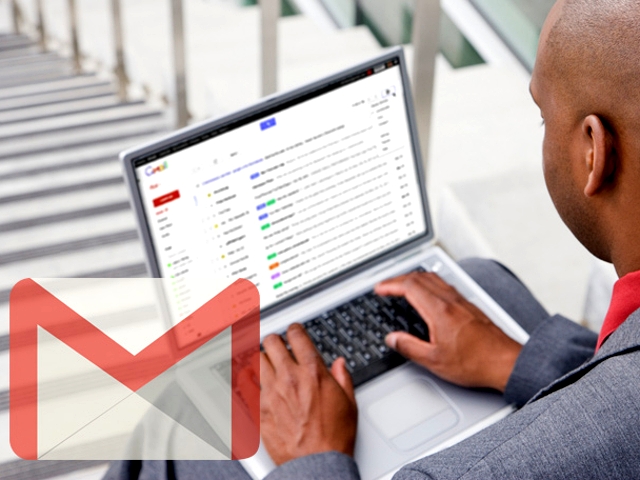
Sophisticated phishing scam targets Google accounts
Google account holders are warned to be vigilant after an enhanced phishing attack was spotted that can give hackers full access to any user’s account.
Bitdefender, the antivirus security firm, detailed that a hard to spot email is being sent out to customers explaining that they need to increase the email storage quota of the account involved and the threat has so far bypassed Google Chrome’s uniform resource identifiers (URIs).

Google testing a radical Gmail redesign
Although a lot of people don’t really like Gmail’s web interface, I’ve never had a problem with it. Once you’ve learned your way around, the UI is functional and you can customize the look with themes, and even your own images.
However, according to Geek.com Google is testing a redesigned interface for its web-based Gmail service. As with all tests, it’s possible the new look won’t see the light of day, but the design appears very polished, and barring a few cosmetic tweaks I think there’s a very good chance it will replace the current UI at some point in the future.

Google to stop spying on your children
One of the major knocks on Google, is that the company collects its users' data. It is that data, coupled with advertising, that makes most of the search-giant's services free. Something being "free", however, is subjective. In other words, just because actual money is not being exchanged, does not mean that something valuable isn't. Your data is very valuable. So is Gmail truly free?
That is a decision that adult users must make. If they don't mind Google scanning their emails, that is OK. Quite frankly, there is nothing morally wrong with this approach on Google's behalf. However, children are an entirely different argument. Harvesting a child's data for profit comes off poorly to many, including myself. Sadly, Google had been doing just that -- scanning the contents of students' email accounts. By definition, this is spying, but luckily Google has decided to stop.

Digital Me: Will the next Cringely be from Gmail?
My last column discussed the intersection between Big Data and Artificial Intelligence and where things might be heading. The question for this column is can I (Bob Cringely) be replaced by a machine?
Look below the fold on most news sites and you’ll see ads that look like news stories but aren’t: "One Weird Trick to Grow Extra Toes!", or "The 53 Hottest Ukrainian Grandmothers!" I’m waiting for "One Weird Trick to Becoming a Hot Ukrainian Grandmother with Extra Toes!" Read the stories and they are total crap, that is unless you have a fetish for Ukrainian Grandmas… or toes. They are all about getting us to click through page after page and be exposed to ad after ad. Alas, in SEOWorld (the recently added 10th level of Hell) some people call this progress.

Gmail learns a new trick -- easily insert auto-backup photos on the web
Cloud storage is great for mostly all file types, but there is one type where it truly shines -- photos. Smartphones have become ubiquitous in daily life, making them the perfect camera. After all, precious memories can occur at anytime, not only when you have your DSLR or point-and-shoot. And so, auto-backup of photos to the cloud is an ideal situation for safety and sharing.
Overall, auto-backup is a great solution, because people like the idea of having their entire library of photos with them wherever they go. However, it can sometimes be tedious to utilize those photos. For example, inserting an image from the cloud into an email can be more complicated than adding a locally stored file. Google recognizes this dilemma and improves Gmail on the web with a new "Insert Photo" button.
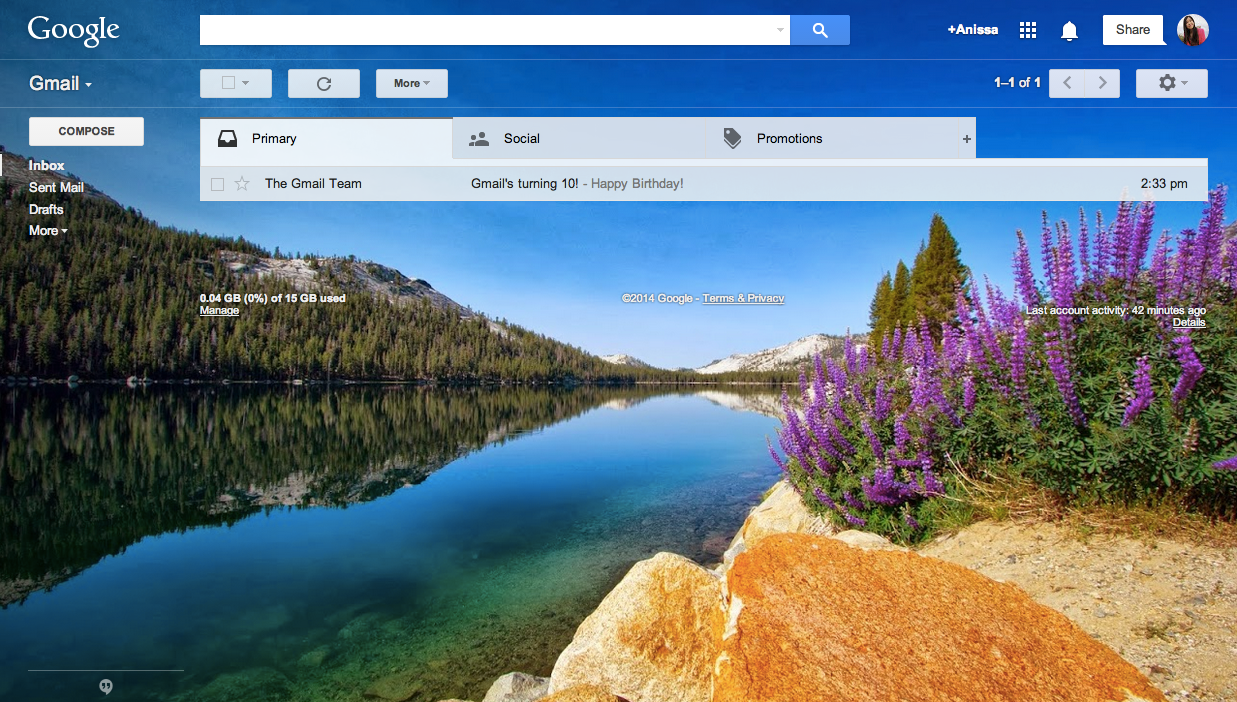
Shelfies turn into custom themes as Gmail stops pranking users
Yesterday was April Fool's Day -- a celebration of hijinks that are enjoyed by readers and somewhat feared by media outlets. Every story requires extra attention, as it is combed for signs of a prank. However, like the readers, the writers mostly enjoy the day as well -- there are notable exceptions, mostly those who managed to get bit by a joke.
One of the popular memes for this year was Gmail Shelfies which, if you were not careful, changed your email theme to a lovely picture of Katy Perry.
